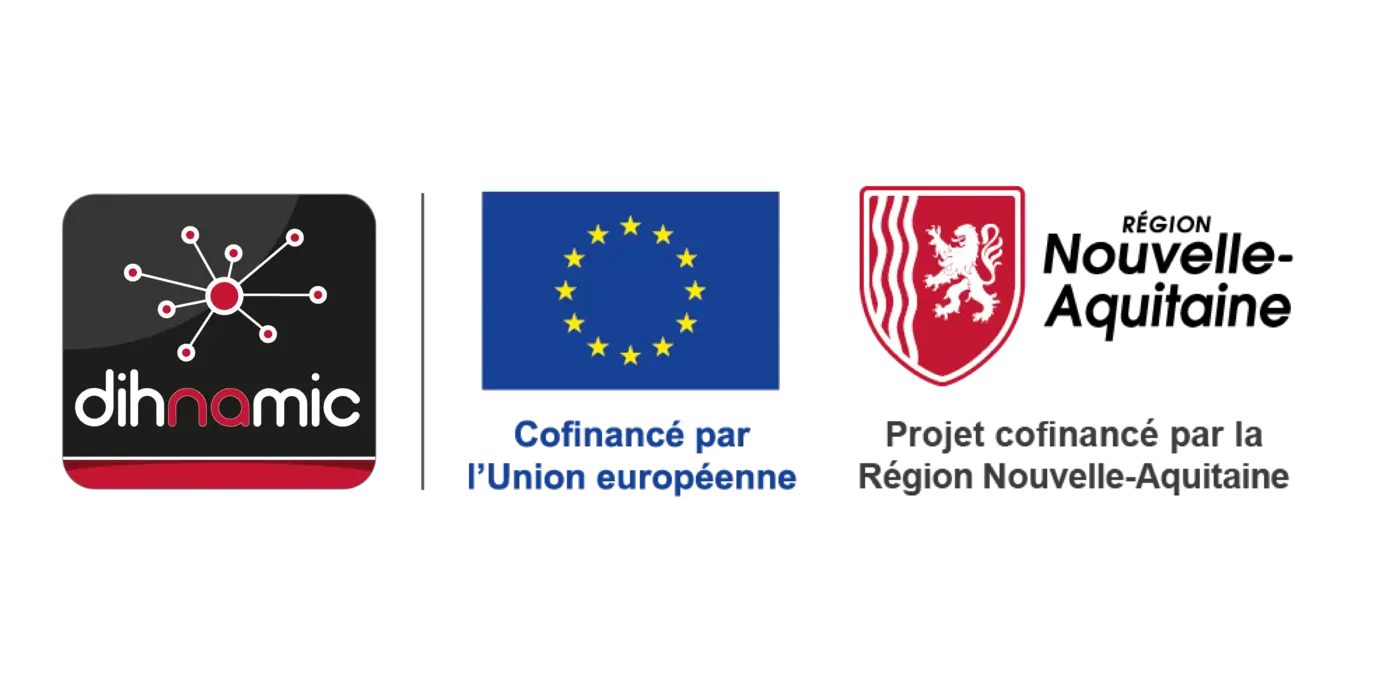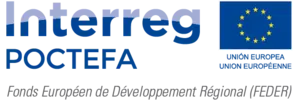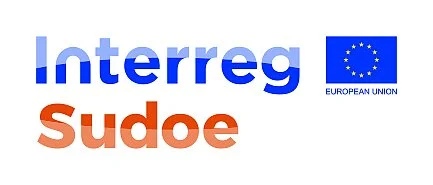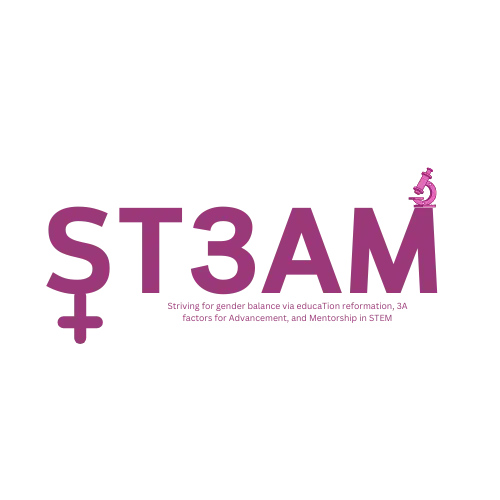List of European projects
ADT4Blue will contribute to the development, implementation and scaling of business ideas addressing the challenges of the blue economy through the use of advanced digital technologies such as artificial intelligence, blockchain and IoT. Existing partners territories will identify the challenges and the consortium will find students, alumni and start-up entrepreneurs from the interregional ecosystem, bring them together in teams, train them, support them in mentoring and in finding funding or customers
PARTNERS / STAKEHOLDERS and ROLES:
Instituto Politécnico da Guarda( Unidade para o Desenvolvimento do Interior)
Centre National de la Recherche Scientifique - Délégation régionale Aquitaine( CNRS Délégation Aquitaine)
University College Dublin( UCD CeADAR)
APA - Administração do Porto de Aveiro, S.A.( Gabinete de Estratégia)
APFF - Administração do Porto da Figueira da Foz, S.A.( Gabinete de Estratégia)
F6S Network Ireland Ltd( F6S Innovation)
NATIONAL UNIVERSITY OF IRELAND, GALWAY (UNIVERSITY OF GALWAY)( Office of the Vice-President for Research& Innovation)
INOVA-RIA - Associação de Empresas para uma Rede de Inovação em Aveiro( International Cooperation)
Asociación de Industrias de Conocimiento y Tecnología - GAIA - Euskal Herriko Ezagutza eta Teknologia Industrien Elkartea(Servicios Cluster)
urola kostako udal elkartea( Agencia de Desarrollo)
ACCENT SUD - ASSOCIATION POUR LA COOPERATION CULTURELLE ET L'ECONOMIE NUMERIQUE TRANSREGIONALE AVEC L'EUROPE DU SUD( Administration)
Universidad de Deusto (Unidad de Gestión de Proyectos Erasmus)
School of Advanced Industrial Technologies ( ESTIA-Tech)
Project leaders :
Jon Arambarri
David
Evgenia
Michel Bakni
Arnaud Catinot
SCHEDULE :
WP1 - ecosystem development -(09/2023 - 05/2026)
WP2. Open Calls and Matchmaking Opportunities for companies - (09/2023 - 03/2026)
WP3 - Capacity Building - (09/2023 - 08/2026)
WP4 Entreprenurial Support - (12/2023 - 08/2026)
The project will create a multi-stakeholder ecosystem and model of intercooperation, innovation, entrepreneurship and internationalization that leverages the marine plastic value chain and emerging business opportunities that arise from marine plastic pollution
PARTNERS / STAKEHOLDERS and ROLES:
DIPUTACION FORAL DE GIPUZKOA
M.I.K. S.COOP
Gobierno del Principado de Asturias
Atlantic Technological University
AGRUPACIÓN DE SOCIEDADES ASTURIANAS DE TRABAJO ASOCIADO Y ECONOMÍA SOCIAL
Sociedad para el Desarrollo Regional de Cantabria
I Clean My Sea
CVR-Centro para a Valorização de Resíduos
Higher School of Advanced Industrial Technologies
University limerick
Laboratório da Paisagem
South East Business & Innovation Centre
Decathlon - NABAIJI
Project managers :
JON ARAMBARRI
JOSEPH CANOU
MAYLIS UHART
EVGENIYA ISHKINA
MICHEL BAKNI
aRNAUD CATINOT
ERIKA REUTER
SCHEDULE :


DEEP FARM est un projet européen coordonné par l’ESTIA, en collaboration avec trois universités européennes et huit universités partenaires situées en Afrique (Madagascar, Côte d’Ivoire) et dans les Caraïbes (Haïti, République dominicaine).
Son objectif : former une nouvelle génération d’agronomes et d’ingénieurs au numérique agricole, grâce à des modules pédagogiques alliant Big Data, intelligence artificielle, capteurs, drones, et IoT, appliqués à des cultures locales (riz, cacao, bananes, fruits tropicaux...).
Ce projet Erasmus+ CBHE (Capacity Building in Higher Education), financé par l’Union européenne, vise à renforcer durablement les compétences des établissements d’enseignement supérieur partenaires, tout en développant des solutions concrètes pour une agriculture durable et connectée.
Plus de 245 étudiants, 45 enseignants et plusieurs partenaires terrain (fermes, ONG, entreprises tech) participent aux expérimentations. Des contenus de formation (MOOC) seront également mis à disposition sur la plateforme FUN et sur le DataLab de l’ESTIA.
Une initiative engagée, portée par l’ESTIA, pour une agriculture intelligente, inclusive et résiliente.
ESTIA is a partner of Dihnamic, which aims to accelerate and guide the transition to AI and digital technologies within companies in New Aquitaine. DIHNAMIC offers a diagnosis of digital maturity, recommendations and the creation of POCs, training, funding searches and introductions to solution providers.


General objective
To provide local companies, particularly those of a relatively modest size, with all the tools they need to tackle the competitive transformation process aimed at implementing the digital passport for products.
What is needed?
Introduction of the new sustainable development guidelines: the digital passport as a tool for tracking all product components to encourage recycling and reuse.
This Commission legislation will introduce harmonised standards for consumer information at the point of sale: repair scores, estimated lifetime, spare parts, repair services and availability of IT updates, all accompanied by intelligent labelling using QR codes.
Expected results :
Methodologies
Methodologies for tackling the implementation of the digital passport for products, particularly for SMEs.
Guidelines
Guidelines for the articulation of a collaborative environment for the implementation of the digital passport for products, with a value chain vision.
Resources
Resources for training people in companies who need to undertake the Product Digital Passport implementation process.

Digitisation and optimisation of renewable energy communities in the Spain-France cross-border area, using energy storage technologies, shared electromobility systems and new flexible loads.
START DATE - 01/01/2024
END DATE - 31/12/2026
PROJECT SUMMARY
In the POCTEFA region, the installation of photovoltaic (PV) production systems is on the increase thanks to the multiplication of self-consumption installations, facilitated by the adaptation of the legal framework in Spain, which has even allowed shared self-consumption. Other opportunities are emerging in this context, such as the development of renewable energy communities (RECs), which empower citizens and involve energy management. However, the creation, management and operation of RECs are complex, and specific tools and networks are needed for their deployment.
This project addresses the challenges of design, development and implementation, using advanced digital technologies such as artificial intelligence (AI) algorithms, digital twins and the Internet of Things (IoT), to improve the management of ECUs (Energy Community Network Units) integrating multiple systems of distributed generation, electricity production, thermal storage, electromobility and other flexible loads (FT).
The project will be developed by a public-private consortium made up of 6 partners from 4 cross-border regions (Basque Country, New Aquitaine, Occitania and Catalonia), including 3 RDI centres (ESTIA, UPV/EHU, CIMNE-UPC), 1 business cluster (DERBI), 2 SMEs (TECSOL and HABITAT F.), as well as 4 associated partners who will support the capitalisation of results. The project will benefit more than 50 SMEs and private entities in the area, universities and RDI centres, as well as at least 10 public entities in charge of policies (CCAA, municipalities, departments and regions).
Cross-border cooperation (CBC) is a major strength of this consortium, which covers the north and south of the Pyrenees. It will make it possible to study the differences in regulations between Spain, France and the various CCAAs or regions, in order to propose solutions adapted to the POCTEFA territory. This cooperation will also ensure additional technology transfers.

The ambition of the EU4DUAL European University is to become the world benchmark for higher education courses combining theory and practice. The courses offered by EU4DUAL will systematise the integration of industrial experience and sandwich courses in a transnational context.
PARTNERS / PARTICIPANTS and ROLES:
University of Mondragon (leader) in Spain
Baden-Württemberg University of Cooperative Education in
Germany
FH Joanneum in Austria
John von Neumann University in Kecskemet, Hungary
FH Savonia in Finland
Koszalin Technical University, Poland
MCAST Malta College of Arts, Science and Technology, Malta
PAR Visoka Poslovna University College in Croatia
Project managers :
29 employees involved (Management, Training, International Department, ESTIA Tech, ESTIA Research, ESTIA Entreprendre)
TIMETABLE :
Start of project: 1 January 2023
End of project: 31 December 2026
MILESTONES :
Kick off meeting: February 2023 in Kuopio (Finland)
November 2023: winter school at ESTIA
April 2024: first EU4DUAL annual conference in Malta
September 2025: launch of the first joint master
FLASH-COMP proposes to develop a fast and reliable quality control solution that uses artificial intelligence to help identify and eliminate defects in the composites manufacturing process. This zero-defect manufacturing approach will help reduce waste by more than 30% and contribute to Europe's planned transition to climate neutrality.
PARTNERS / PARTIES and ROLES:
The project has 14 partners, including ESTIA
Partners: LORTEK, INEGI, AIMEN, JOANNEUM RESEARCH FORSCHUNGSGESELLSCHAFT, CSEM, INFAIMON, MONDRAG, ESI GROUP, MADE SCARL, POLITECNICO DI MILANO, AZIMUT-BENETTI, ISRAEL AEROSPACE INDUSTRIES, INSIGHT MEDIA GROUP
Project managers :
Olivier Larre, Chloé Morel, Michel Bakni, Cynthia Lamotte, Simon Deseur, Florent Lopez
TIMETABLE :
Start date: 03/10/2022
End date: 31/03/2026
The GIF project will receive ADEFSA funding in 2023. It aims to create a Master's degree at the University of Kindia (Guinea) in advanced technologies, innovation and entrepreneurship, operational logistics, quality and safety to develop skills for the industry of the future adapted to the Guinean context. The objectives of this project are to increase the employability of graduates from Guinean universities, to strengthen, diversify and develop Guinean industry to make it a driving force for economic and social development, and to set up a "Technological Institute" in Kindia, which can be supplemented by other training courses, once the skills of the teaching team have been strengthened and appropriate teaching resources acquired.
PARTNERS / STAKEHOLDERS and ROLES:
Academic partner :
Kindia University in Guinea
Project managers :
Project coordinator: Juhane Dascon Project manager: Chelza Inzouddine
Teaching researchers: Jérémy Legardeur,
Adriana Aguilera, Zina Boussaada, Adama Arama,
TIMETABLE :
Project start date: June 2023
End of project: September 2025
MILESTONES :
June 2023: GIF project launched
January 2024: Calculation of trainer requirements for the period October 2024-July 2026: Guinean teachers, ESTIA teachers.
End of January 2024: Training plan for trainers.
February 2024: Pedagogical seminar in Kindia
June 2024: Composition of the "employment, professional integration, employer relations" team in UK
October 2024: Start of the 1st Master 1 cohort.
September 2025: Feedback, decision on operation for 2025-2026.
2024 was the final year of the Erasmus+ "HealthTEK" project, led by ESTIA and its European partners (University of Deusto, Fundación Francisco de Vitoria, Politechnika Bialystok) to develop gamified training content in Biomedical Engineering. In addition to a virtual campus, the partners have produced a handbook to guide users' learning and a smart module to test their knowledge. This project has enabled ESTIA to develop training content applied to health (biosensors, AI & health), and to welcome, in June 2024, health players and technology developers to consider future areas of collaboration and training.


![]() Background
Background
The ORHI project, developed as part of the 2014-2020 POCTEFA programme, added value to the agri-food industry by developing synergies between organisations in the different participating regions: Euskadi, La Rioja, Navarre, Pyrénées-Atlantiques and Occitanie.
The aim of the project was to contribute to the evolution of the agri-food sector towards a circular economy, focusing on organic materials and plastic resources. The project resulted in an innovative methodology for finding synergies between companies, a catalogue of innovative technologies, a catalogue of business models and support for the implementation of new solutions in companies in the agri-food sector through feasibility analyses, collaboration agreements and technology transfer.
Summary
The POCTEFA region, like many other European regions, is faced with the challenge of protecting and sustainably using its natural resources, and needs to effectively manage and accelerate the transition to a circular economy. Following on from the previous ORHI project, the consortium wishes to continue cross-border cooperation and develop activities relating to the circular economy.
The ORHI+ project, with the collaboration of various entities and companies from the Basque Country, La Rioja and the Atlantic Pyrenees regions, promotes the deployment of circular economy technologies and business models to strengthen the sustainability and circularity of economic activities.
This new project uses a systemic approach, addressing the transition to the circular economy with businesses, industries and the public sector, focusing on promoting the deployment of solutions in businesses, and strengthening the role of public authorities in implementing circular economy solutions.
Funding
The ORHI+ project has been 65% co-financed by the European Union through the Interreg VI-A Spain-France-Andorra Programme (POCTEFA 2021-2027). The aim of POCTEFA is to strengthen the economic and social integration of the Spain-France-Andorra border area.
Total cost: €1,608,867.95.
ERDF: €1,045,764.17
Description of the project
The aim of the ORHI+ project is to deploy various circular economy solutions in businesses and public authorities, in order to strengthen the sustainability and circularity of economic activities in the cross-border area.
The action of the ORHI+ project is based on the development of 7 demonstration projects around four thematic axes:
Recovery of by-products from the agri-food sector.
Development of biomaterials/products
Life cycle of plastics
Process optimisation
The activities envisaged as part of the project are as follows:
Development of a decision-making and project selection tool to prioritise their actions in the field of the circular economy.
Thematic and international monitoring activities to research and analyse innovative solutions and good practices related to the project's themes of interest.
To disseminate the project's results and tools, eco-design and environmental footprint workshops will be organised for businesses in the participating territories, as well as thematic webinars to disseminate the results obtained from the monitoring and demonstration projects.
Promotion of a pilot call for applications for grants to support the development of circular economy business models.
The cross-border approach of the project enables the issue to be addressed from a broader perspective, multiplying opportunities and increasing the impact and target audience in the territories.
Implementation period
The project will run from 01/01/2024 to 31/12/2026.
Expected results
The development of the project will lead to the support and guidance of SMEs for the implementation of innovative circular economy solutions and the development of demonstration projects. Cross-border demonstrations will be developed to accelerate the implementation of technologies in various fields: recovery of by-products, development of biomaterials, management of agricultural and livestock plastic waste and improvement of processes using innovative technologies. These projects will be supplemented by four catalogues of innovative solutions and best practices.
Tools and a methodology for eco-innovation will be obtained to facilitate decision-making by public bodies and businesses, and to improve the sustainability and circularity of economic activities.
Participating partners
The ORHI+ project consortium is made up of 9 partners from the POCTEFA region:
APESA supports businesses in their transition, particularly in methanisation and composting. APESA is the lead partner, coordinating the project and using its expertise in composting and methanisation to test and optimise a method for conserving and processing bio-waste.
ESTIA, an engineering school that develops eco-innovation methodologies to improve sustainability and circularity in various economic activities, has a team of researchers studying the optimisation of industrial processes for natural fibre-based composites. In the project, it will contribute to the implementation of the eco-innovation methodology and the development of prototypes using bio-polymers and polymer composites based on natural fibres and mycelium-based materials.
ADER develops projects to promote eco-innovation and circular economy pilot initiatives, is a member of the Enterprise Europe Network and has experience in technology research and technology transfer processes. As part of this project, she will be responsible for defining a collaborative grant scheme to facilitate the development of regional circular economy projects and will coordinate various business missions.
ENTAINA is an SME with expertise in the recovery of agricultural waste, particularly from vine cutting. As part of the project, it will be testing the recovery of vine shoots to convert them into biodegradable food containers and packaging, replacing plastic.
AXALKO is an SME specialising in research, development, innovation, industrialisation and marketing of technologies and products related to biomaterials and the bioeconomy. Its involvement in the project will focus on the manufacture of products based on bio-composites, applying the innovations and technologies developed to create consumer products.
SOLTECO is an SME involved in the recycled plastic waste industry and has a technology for transforming recycled materials into products. Its participation in the project will focus on the management and recycling of plastic waste from agriculture and livestock farming.
CCIBPB offers support to companies and SMEs in Iparralde (Northern Basque Country), from the creation of the project and throughout the life of the company. It will participate in the creation of tools for the integration of circular economy criteria into public procurement contracts and will support projects for the recovery of by-products from the agri-food sector.
SAIOLAN, as an entrepreneurial and innovation centre offering services to promote regional development through market studies and feasibility plans for the creation of new business activities, the identification of innovative solutions abroad and their transfer to the local business fabric, will be responsible for coordinating the monitoring of the various areas of interest.
ACLIMA, a cluster that currently has 133 members, is a reference point and federator of the Basque environmental sector, promoting the integration of environmental sustainability into the business management of different economic sectors, as an opportunity for competitiveness. Aclima is responsible for the project's communication activities and will be involved in promoting eco-design tools and circular economy solutions to businesses.
Enabling people with motor disabilities to communicate better using artificial intelligence is the aim of the "Prendre la Parole" project, the fruit of collaboration between ESTIA, the Vivre & Devenir association and the Fablab L'Etabli. An interactive prototype was installed from 6 September 2024 to 3 February 2025 at the Cité des Sciences et de l'Industrie in Paris. This prototype, which will then be deployed at the Palais de la Découverte, aims to raise awareness among the general public while generating essential data for the development of the final device.
Recycling sanitary masks to make FFP2 masks with a new, more ergonomic design
PARTNERS / STAKEHOLDERS and ROLES:
5 partners :
Leader: Ecodas
CETI
University of Lille
Estia
Macopharma
Project leaders :
CdP: Simon NAVARRO
Pepss team: Marion WOLFF Chloé MOREL
Compositadour team: Vincent MAGIMEL PELONNIER, Mateo SAN PEDRO
TIMETABLE :
Project start date: 01/06/2021
End of project: 31/05/2024
D1.1 : 01/01/2021
D2.5: 31/12/2023 => postponed until 30/06/2024
REVITAL aims to develop physical and neurological rehabilitation services in rural areas of Castilla y León (Spain), Beira Baixa (Portugal) and the Basque Country. The idea is to use technological tools to offer teleassistance and telerehabilitation services that can create skilled jobs and stimulate the rural economy. In 2024, ESTIA participated in the selection and evaluation of technological tools and the definition of business models, as well as organising a day dedicated to e-health.

SCIRT's main objective is to carry out all the stages of closed-loop recycling of garments that are representative of the textile industry in terms of their complexity and materials.
PARTNERS / STAKEHOLDERS and ROLES:
18 partners :
Leader :VITO
6 brands (including Décathlon, Petit Bateau, etc.)
6 research institutes
2 manufacturers
4 ecological transition consultancies
Project managers :
CdP: Simon NAVARRO
CETIA team.
TIMETABLE :
Project start: 01/06/2021
End of project: 31/05/2024
D1.1 : 31/12/2021
D2.5 : 31/05/2024
The SCORE project ended in 2024 with an event bringing together 180 secondary school students in Spain, Lithuania and ESTIA. The aim of this Erasmus+ project was to train young people to behave in a more sustainable way, by integrating the principles of the circular economy from secondary school onwards, thanks to teaching materials made available to secondary and higher education teachers. All the SCORE educational content developed is available to the public at: plateform.projectscore.eu/home



The SharedH2-Sudoe project aims to promote the use of renewable hydrogen as an energy storage solution to achieve climate neutrality by 2050. It aims to reduce urban-rural imbalances in Spain, Portugal and France, while developing sustainable economic activities and improving the quality of life of local residents. Through pilot actions, the project is exploring innovative solutions for producing renewable hydrogen from photovoltaic energy, particularly for transport. It is also developing a joint strategy for the economic and social revitalisation of rural areas, and preparing a European roadmap for integrating renewable hydrogen into public policies. Thanks to this project, ESTIA's Micro-Grid demonstrator will be enhanced by the integration of a complete hydrogen conversion chain.

Starting in October 2024, the ST3AM project aims to encourage equity, inclusion and equal opportunities for women pursuing studies in science, technology and engineering (STEM). The project, which involves several European partners including ESTIA, will provide educational and empowerment tools, learning opportunities and inspiration for women to pursue STEM careers.

The European TEAMIT+ programme aims to raise awareness and educate young people about climate issues, giving them the tools to become players in the ecological and social transition. In 2024, this programme gave rise to a "24 hours of innovation for the planet" event held simultaneously in Greece, Spain and Finland, which brought together more than 300 participants.

The CORAC "TOUCANS" project aims to define a highly automated cockpit for integrated operations in the aeronautics ecosystem of the future.
PARTNERS / PARTIES and ROLES:
The project has 21 partners, including ESTIA
Partners : Airbus Operations, Airbus Defence and Space, ATR, Armines, CNRS Occitanie, COMUE Universités Paris Lumières, Dassault Aviation, Factem, Human Design Group, Ingenuity, ISAE ,LORD Solutions France, ONERA, OKTAL Synthetic Environment, Safran Electronics & Defense, Safran Electronics & Defense Cockpit Solutions, Stelia Aerospace, Thales AVS France, Vishay, Vodea
Project managers :
Régis Mollard, Marion Wolff, Chloé Morel, Benjamin Berton, Mateo Campos, Julien Ramiz, Guillaume Terasson, Octavian Curea
SCHEDULE :
Start date (T0): 15/06/2021
End date: T0 + 32 months i.e. 15/02/2024
